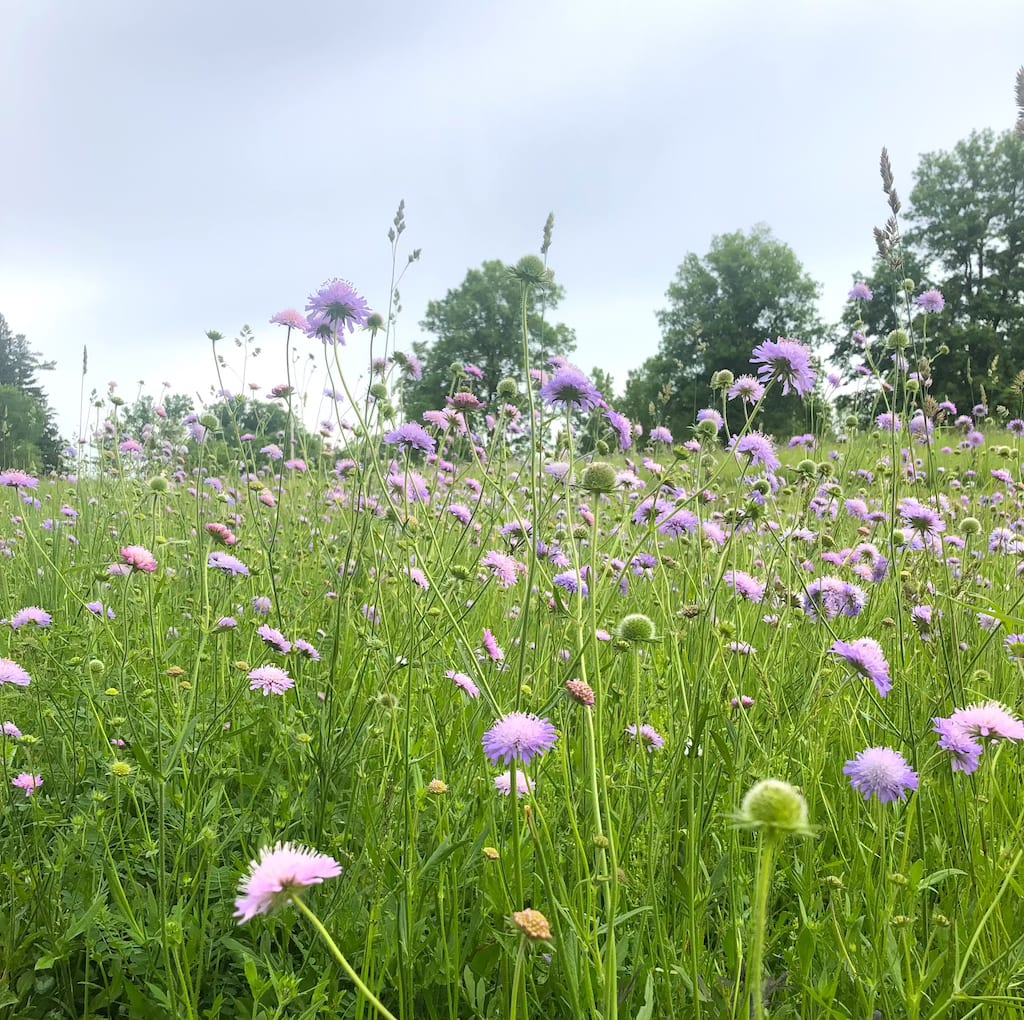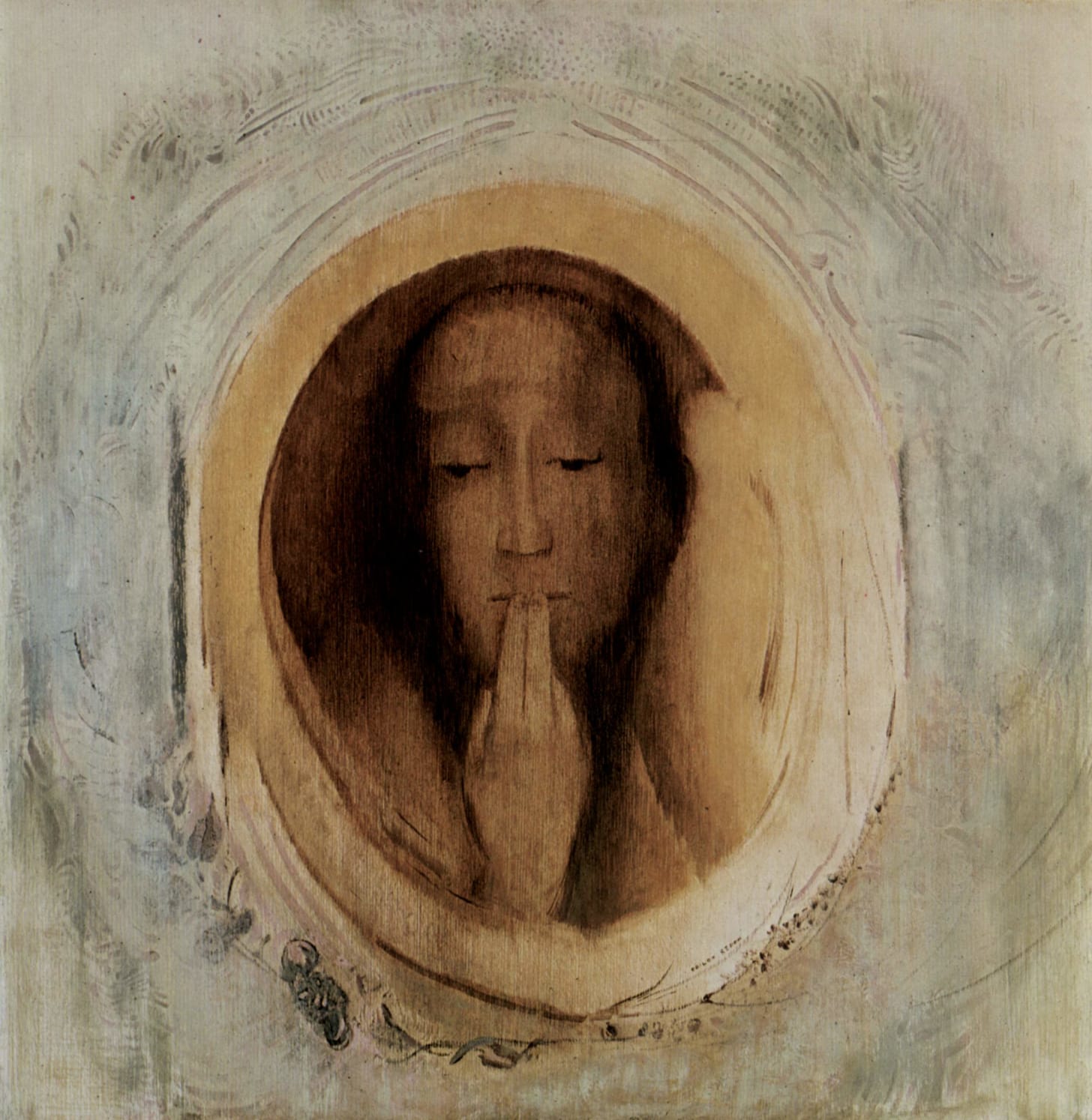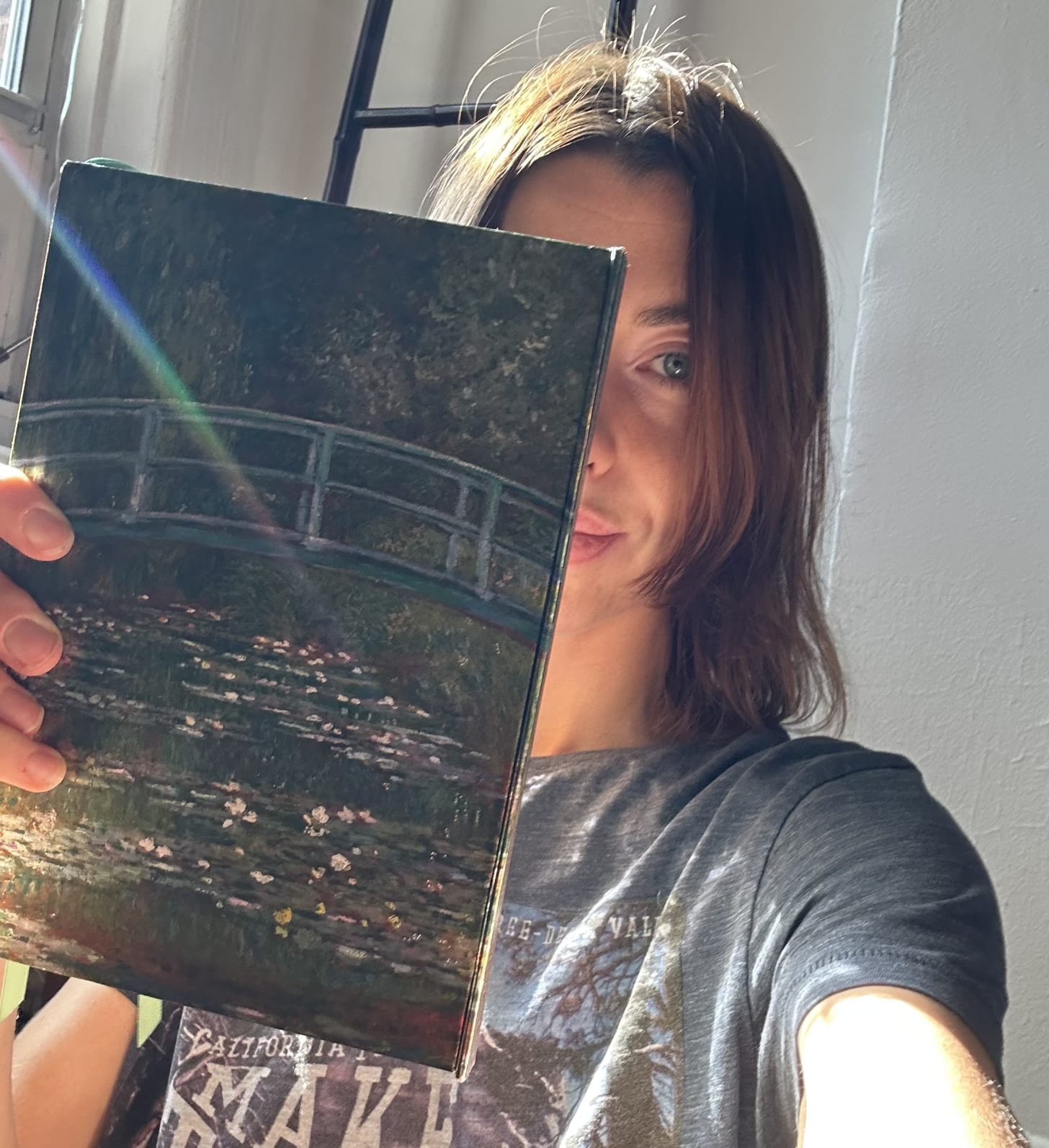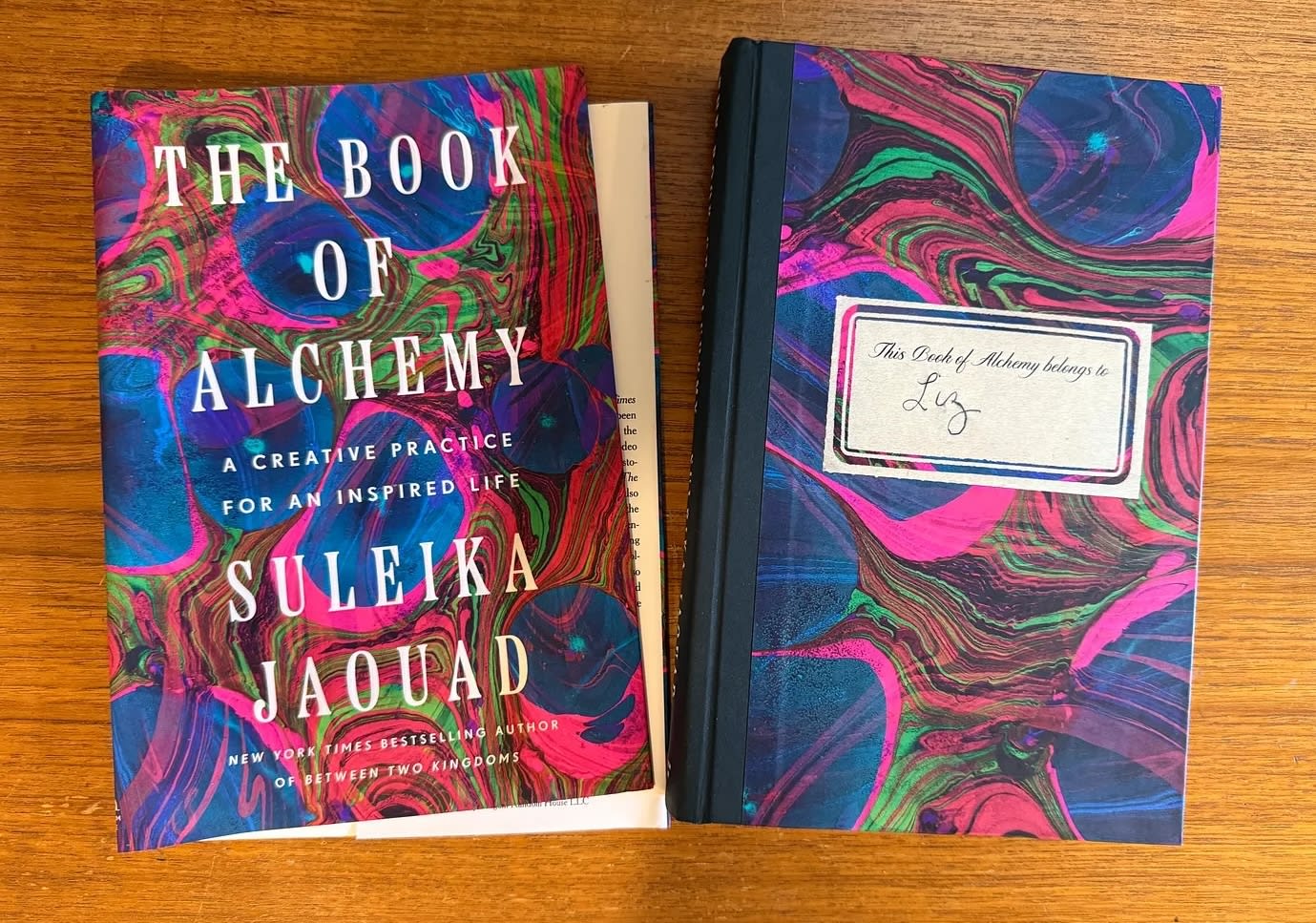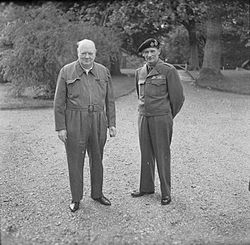For most of my adult life, I’ve worked like I’m running out of time. Maybe because I am. (Aren’t we all?) The leukemia diagnosis and relapses certainly intensified the urgency I feel around work, but the truth is my sense of self-worth was tethered to my output long before that.
I used to think that once I made it—got the book deal, built a steady-enough stream of freelance work, stashed away some savings to weather a health crisis or creative drought—I’d finally feel free to slow down when I wanted to. That I’d be able to choose rest without guilt. That I’d reach some mythical state of work-life balance.
Instead, accomplishment—and the sense of “arrival” I imagined would come with it—proved elusive. Each time I reached one goal, two new ones grew in its place. With success, the cycle didn’t let up. And it didn’t just persist—it was reinforced by praise and rewards in the most insidious way. It bloomed into a many-headed hydra of ambition, self-doubt, and perfectionism.
That’s the strange double-edged sword of being a self-employed artist: nothing is guaranteed, everything is possible. No one can tell you when to rev up and when to clock out because the only boss breathing down your neck is the one who lives inside your head. And no one can fill in for you—because the work lives in your body, like a second heartbeat.
Case in point: my birthday trip. To take time off, I crammed two weeks of work into one. By the time I boarded the plane to Morocco, I was so drained by the effort of stepping away that I muttered, “I don’t ever want to take a vacation again.”
And yet—that trip filled me to the brim. I came home humming. Recharged by new rhythms, creatively transported by the change in scenery, awash in gratitude for my travel companions and the memories we made. I told everyone it was worth it a million times over: “I’d work twice as hard to make space for this kind of break again.”
But deep down, another voice was stirring—the one that’s tired of the frenetic pace, the one that knows there’s a better way. The one that sees through the myth of enough, that knows the goalposts will always just keep moving. That understands how capitalism doles out prizes for visibility and speed—even when those very forces stifle the creative process and are at odds with what it takes to make something daring, unruly, and true.
That voice piped up again the other day when a friend texted me this poem by Emily Dickinson:
Text within this block will maintain its original spacing when published
To make a prairie it takes a clover and one bee, One clover, and a bee. And revery. The revery alone will do, If bees are few.I’ve returned to this tiny gem a dozen times since. I love its sly rhythm and simplicity, the way a single clover and one lone bee flare into a whole prairie. The idea that all you need to create something vast and fertile is a sprig of green and a little effort.
But more than that, I love Dickinson’s final turn: “The revery alone will do / if bees are few.” You don’t always have to muscle your way through. Sometimes, dreaming is enough.
I copied the poem onto a scrap of paper and tucked it into the pocket of my journal. It’s there for the next time I busy-bee myself into a frenzy of proving and producing. A reminder that rest and revery aren’t indulgences—they’re the seedbed for the prairie. They make room for what’s next.
So, in honor of my French and francophone cousins who take August off as a matter of cultural wisdom—and in the spirit of being a little less American about work—I’m doing the same. This means a break from the Sunday newsletter for the remainder of August.
I want to sit with boredom and see what bubbles up. I want to spend a day reading on the couch with my dogs curled around me. I want to write a short story by accident at the kitchen island. I want to make a messy watercolor for no reason but joy. I want to rest in revery—so I can dream up new things and return to you (ready to make a prairie) in September.
You’ll still hear from me via the Journaler’s Routine each week, and if you’re a paid subscriber, we’ve got today’s creative hour, where I’ll be joined by my friend and mentor, the luminous and fierce Melissa Febos. And if you’re missing the prompts, there’s a whole book of them waiting for you. (Plus a deep archive.)
Before I go, I’m leaving you with a piece and a prompt that feel just right for this moment. It’s an essay by the musician Kimbra, from The Book of Alchemy, called “Silence.” It’s about what happens when we stop performing and simply hold space—awkwardly, tenderly—for whatever might rise to the surface.
May you flirt with silence long enough to see what comes up.
May you let the bees rest.
May you remember: nothing blooms all year.
May revery alone do.
I’m hosting a very special edition of our monthly creative hour today (August 3) from 1–2pm ET. I’ll be joined by the brilliant writer, thinker, and teacher, Melissa Febos. We’ll talk, we’ll write, we’ll answer your questions—so feel free to drop them in the comments! This gathering is for paid subscribers. If you’d like to join us, upgrade, then click here for everything you need to attend.
Earlier this week, I also shared the fifth installment of our summer series, The Journaler’s Routine, featuring musician Kimbra, who reflects on how journaling reminds her that “this too shall pass.” Read it here.
The shows were going great, but some nights I felt empty. I was in total control, yet I still felt like a monkey, stepping onstage and doing the same tricks I knew so well. The fans were amazing, the shows were selling successfully, but I knew what would happen when I stopped singing. The audience would clap. I would smile. The next song would start. I would move. They would look. We would do what we’ve always done. Audience and Performer. Bow and stand. I was tired.
My show at the Sydney Opera House was fast approaching, and people kept asking me if I was excited. I would, of course, smile and say yes. But deep down, in that inner place of knowing, there was a resounding no. It was at this moment I knew something had to change. Music was
my portal into the sacred. I could not let the demands of the music industry rob me of my gift and my service or let burnout rob me of my greatest joy. I lifted my eyes and asked the skies: What would make me excited to play this show? An interesting word emerged: silence.
I imagined the Sydney Opera House humming with the final vibrations of a song, the bass melting into the distance and the harrowing, serious arrival of silence. That certain, firm, loving absence that silence holds you in. I imagined listening to the builders who had laid every brick. That thick hum of human presence. That rich waiting. I called my band and told them of my plan. We created drones and sine waves to trigger in between songs and sketched out a new lighting concept that would help create an atmosphere of “holding.”
The new show came together just in time. The night arrived; the lights went down. I walked onto the stage brave but prepared to flop. I issued an invitation to the audience: not only to withdraw their phones but also their applause between songs. We played our first, and as we finished, the sounds morphed into a long drone, like a meditation gong resonating through the house. Slowly the sounds disappeared. It was eerie. Now and then, a clap would cut the air and dribble through the blanket of silence. Awkward and clumsy, people would giggle, then settle into the void once more.
We pushed through the initial discomfort of such raw togetherness until that awkwardness subsided and the room became caring. Our curiosities swayed to one another. The artist was not creating the show; she was facilitating its arrival. We settled into our new role as one living organism. We felt held. We were resting together. All sound fell away, and together a sea of two thousand people bathed in an iridescent blue light came to complete stillness for six whole breaths after every song.
The applause at the end of the show was rapturous and glorious and so meaningful. It was cathartic for the audience, and it also fed me in new ways. I felt seen and known. I had shared my inner chaos and longing with these strangers. They had trusted me. We had held hands through the strange terrain, and now the rain was falling in the desert, and we were dancing under it together, celebrating the quenching of our thirst for deeper presence with one another.
Explore silence. Maybe set a timer for five minutes, or just sit in it for six long breaths. Do you resist it? Do you expand into it? Write about what happens in the waiting.
Kimbra is a New Zealand-born songwriter, musician, producer, and adventurous performer. Her 2011 debut, Vows, was certified platinum in Australia and New Zealand; that next year, “Somebody That I Used to Know,” a duet with Gotye, topped Billboard’s Hot 100 chart, was the bestselling song of the year in the United States, and earned her two Grammy Awards. Since then, she has toured with artists ranging from The Roots and David Byrne to Beck, Son Lux, and Jacob Collier. She has released four more albums to date: The Golden Echo, Primal Heart, A Reckoning, and most recently Idols & Vices, Vol. 1. Subscribe to her newsletter,
, where she writes to discover what lies beneath and beyond her music.
Consider the Lilies, an essay where I reflected on the tyranny of striving and hustle culture and wrote about how I first learned and am relearning my forever lesson: the importance of rest
Mothers, Daughters, & the Artist’s Life, a video replay of the artist talk from “The Alchemy of Blood,” my joint art exhibit with my mom, Anne Francey, where we discussed how the works came into being, the meaning we make of them, the joy of aging, and the high-wire act of balancing motherhood and creative work
Beholding the Body, an installment of my advice column Dear Susu, where I responded to this question from a community member: “How do I make peace with changes in my appearance?” (Hint: My answer involved Frida.)
Last week I asked for your stories of connection and accountability, and I saw a comment from a community member named Liz, where she mentioned that she was on Day 97, and suddenly I realized—some of you may have hit 100 days this week! Here’s what Liz wrote:
My sister Ann and I have been reading The Book of Alchemy together. (I live in New York and she lives in Tucson.) For the last 97 days, every morning we do that day’s prompt, then take a photo of our journals (we bought matching notebooks!) and text it to each other. Occasionally we’ll discuss what we wrote, but mostly it’s the act of sharing this ritual that is so meaningful. I’ve never kept a journal before, and I am excavating so many memories. I’m a singer, but I’m starting to believe I am a writer, too.
So now I have to ask, has anyone made it to 100 days? If not (yet!), then where are you in the process? And have you gleaned any insights about writing or life? Please share!
.png)

